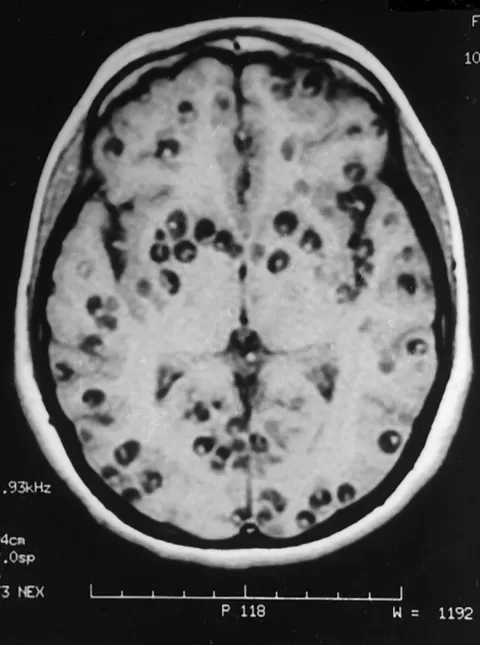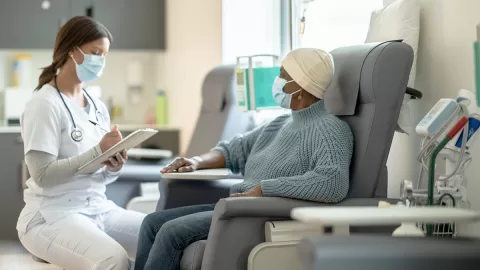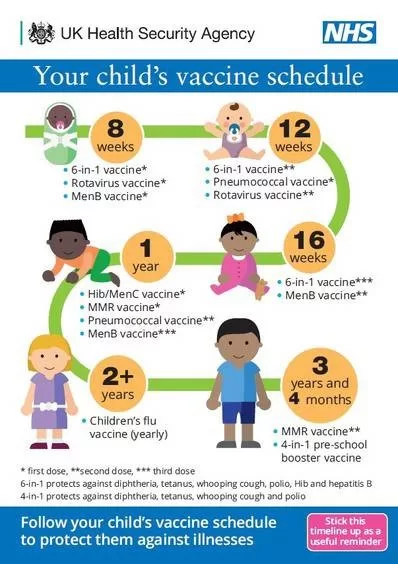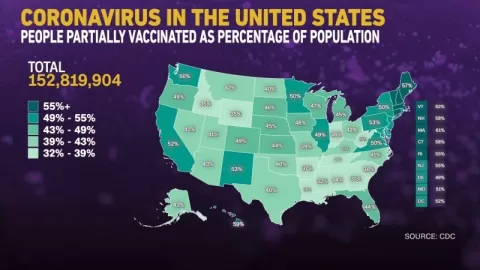The chikungunya virus is making headlines in France after officials reported their second mainland case in the commune of Prades-le-Lez. This mosquito-borne disease, which has been causing concern in recent months, has led to over 50 reported cases since May 1, primarily linked to international travel, especially from Réunion, where a significant chikungunya outbreak occurred. Health updates indicate that authorities are taking proactive measures to address potential risks, including conducting door-to-door surveys to detect chikungunya symptoms among residents. The presence of this virus highlights the broader impact of mosquito-borne diseases in France, prompting discussions on public health and safety. As France health news continues to evolve, staying informed about chikungunya and related outbreaks is crucial for community awareness and prevention efforts.
Also referred to as the chikungunya fever, this viral infection is transmitted by infected Aedes mosquitoes and can lead to debilitating symptoms such as high fever and severe joint pain. The emergence of this virus on the French mainland underscores the importance of mosquito control and public health readiness against vector-borne diseases. As health officials in Prades-le-Lez monitor the situation closely, residents are being urged to stay vigilant and report any signs of illness. Similar to other viral infections spread by mosquitoes, chikungunya is a reminder of the health challenges posed by these pests, particularly in regions experiencing climate shifts that favor their proliferation. Awareness and education about prevention strategies are essential for minimizing the impact of such diseases in both urban and rural settings.
Understanding the Chikungunya Virus and Its Recent Cases in France
Chikungunya virus is a vector-borne disease transmitted primarily by the Aedes aegypti and Aedes albopictus mosquitoes. Recently, France has reported its second mainland chikungunya case in the commune of Prades-le-Lez, confirming the presence of this virus in a region previously thought to be mostly free of such diseases. The rising number of cases, linked to travel and mosquito bites, highlights the growing concern for public health officials. With over 50 suspected cases reported in the area since May, many of these are connected to travel to Réunion, where a significant chikungunya outbreak has occurred.
Health authorities in the Hérault department are on high alert, conducting door-to-door surveys to identify any further chikungunya symptoms among local residents. Symptoms often include high fever, severe joint pain, rash, and fatigue, which can markedly impact individuals’ quality of life. The spread and potential outbreaks of chikungunya and other mosquito-borne diseases have prompted increased awareness and preventative measures in southern France, emphasizing the importance of public health updates and the need for proactive measures to control mosquito populations.
Chikungunya Outbreak in Prades-le-Lez: Health Updates and Community Response
As the chikungunya virus continues to pose a risk in Prades-le-Lez, the local health authorities are implementing thorough health updates and strategies to contain its spread. With recent reports indicating a doubling of cases, the health department is mobilizing resources to ensure that communities are well-informed and prepared to take necessary precautions against mosquito-borne diseases. These community health measures not only focus on immediate reporting of symptoms but also involve educating residents about preventive actions such as eliminating standing water and using mosquito repellents.
Moreover, the involvement of local residents is crucial in managing the chikungunya outbreak effectively. Community awareness programs are being rolled out, and residents are encouraged to report any instances of mosquito breeding grounds. This grassroots approach, in conjunction with official health updates, fosters a collaborative environment where everyone plays a part in their own health security. As the number of cases remains a concern, continuous updates in France health news regarding the chikungunya virus and its symptoms will be vital to reining in further transmission.
The Impact of Mosquito-Borne Diseases in France: Chikungunya and Beyond
The emergence of chikungunya as a mosquito-borne disease in France underscores the increasing threat posed by such pathogens globally. With a notable spike in cases linked to both local transmission and international travel, France is now more vigilant about its public health systems. The Hérault department’s report of chikungunya cases is a stark reminder that even temperate climates can be affected by exotic diseases, necessitating robust strategies to combat the risks associated with mosquitos. Local health officials highlight that understanding and controlling these vectors is essential to prevent outbreaks.
In addition to chikungunya, other mosquito-borne diseases like dengue and Zika are also of concern in various regions worldwide, thereby amplifying the need for nationwide awareness campaigns and preventive health measures. The unfolding situation in Prades-le-Lez serves as a case study for potential responses to similar outbreaks elsewhere. France’s experience indicates that educating the public about recognizing symptoms and taking preventive actions is crucial for minimizing the impact of mosquito-borne diseases.
Symptoms of Chikungunya: How to Recognize and Respond
Recognizing the symptoms of chikungunya is essential for prompt treatment and reducing the risk of spreading the virus. The common symptoms include sudden onset of fever, severe joint pain, headaches, muscle pain, joint swelling, or rash. Due to its overlap with other mosquito-borne diseases such as dengue, it is important for individuals experiencing these symptoms, especially after traveling to affected areas, to seek medical attention immediately. Public health officials emphasize that awareness of these symptoms can lead to early diagnosis and better management of the disease.
In regions experiencing chikungunya outbreaks, community health programs are vital for educating the population about these symptoms. Timely health updates and symptoms guidance can empower residents to respond appropriately, reducing the burden on healthcare facilities. Additionally, by fostering an informed community, health officials can better control the situation and prevent further transmission of the virus.
Traveling Amidst the Chikungunya Risk: Safety Measures for Travelers
Traveling to locations impacted by chikungunya necessitates an awareness of the associated risks and necessary precautions to take. With the current cases reported in Prades-le-Lez, travelers are advised to stay informed about the health conditions of their destination. Utilizing mosquito repellents, wearing long sleeves, and staying in accommodations equipped with mosquito nets are all preventive measures that can help minimize exposure to potential vectors of the virus. Authorities recommend checking the latest health updates prior to travel, ensuring that individuals are prepared for any health advisories.
Additionally, travelers should educate themselves on the symptoms of chikungunya and take swift action if they begin to feel unwell. Early recognition and reporting can make a significant difference in both individual health outcomes and public health responses. Whether for leisure or work, ensuring personal safety should always be a priority, especially in areas where mosquito-borne diseases are prevalent.
The Role of Public Health Agencies in Managing Chikungunya Outbreaks
Public health agencies play a crucial role in managing outbreaks of chikungunya and other mosquito-borne diseases. Their function includes monitoring disease trends, conducting surveillance, and implementing control measures such as vector management and habitat reduction strategies. In response to the outbreaks in Prades-le-Lez, health officials are disseminating regular updates about new cases, preventative actions, and healthcare guidelines, ensuring that the community remains informed and proactive.
Furthermore, public health initiatives are often supported by community engagement programs which encourage resident participation in monitoring and reporting mosquito activity. This two-way communication improves the efficacy of public health efforts and fosters community resilience against future outbreaks. By investing in robust public health strategies and timely intervention, health agencies aim to protect communities from the chikungunya virus and enhance overall community health.
Community Awareness Campaigns: Fighting Chikungunya Together
Community awareness is an invaluable tool in the fight against chikungunya and similar diseases. Campaigns focused on educating the public about prevention and control strategies can significantly lower the incidence of mosquito-borne illnesses. In Prades-le-Lez, local health authorities have initiated programs aimed at raising awareness about the signs and symptoms of chikungunya, urging residents to take simple actions such as eliminating stagnant water and using mosquito repellents.
Active community engagement creates a collaborative approach towards public health, enhancing the capabilities of local officials to track and manage disease spread. Success in these campaigns relies heavily on the ability to communicate effectively with the population, ensuring that messages about health updates and prevention measures are clear and actionable. With collective efforts, communities can better protect themselves against chikungunya and foster a healthier environment for all.
Conclusion: Staying Ahead of Chikungunya and Other Mosquito-Borne Diseases
As France continues to deal with rising cases of chikungunya, it is vital to stay informed and proactive in combating mosquito-borne diseases. The situation in Prades-le-Lez serves as a call to action not just for local health services but also for the broader community to adopt preventive measures. Understanding the symptoms, following health updates, and participating in community health initiatives can significantly reduce the impact of these outbreaks.
Looking ahead, continuous education and awareness campaigns will be essential for equipping communities to deal with current and future health threats. By fostering a proactive public health culture, communities can take ownership of their health and safety, ultimately paving the way for a healthier future free from the burdens of chikungunya and other similar diseases.
Frequently Asked Questions
What is the chikungunya virus and how is it transmitted?
The chikungunya virus is a mosquito-borne virus that causes fever and severe joint pain. It is primarily transmitted to humans through bites from infected mosquitoes, particularly Aedes aegypti and Aedes albopictus, which are prevalent in tropical and subtropical regions. Recent outbreaks in France, including cases reported in Prades-le-Lez, underscore the importance of awareness regarding mosquito-borne diseases.
What are the symptoms of chikungunya virus infection?
Symptoms of chikungunya virus infection typically include high fever, severe joint pain, and rash. Other symptoms may include muscle pain, headache, and fatigue. These symptoms usually appear 3 to 7 days after being bitten by an infected mosquito. Awareness of chikungunya symptoms is crucial, especially in regions experiencing outbreaks, like recent cases reported in France.
How many chikungunya cases have been reported in France recently?
Recently, France has reported its second mainland case of the chikungunya virus in Prades-le-Lez, part of the Hérault department. Since May 1, over 50 cases linked to travel have been identified in the region, highlighting a concerning presence of the chikungunya virus and its related mosquito-borne diseases.
What health measures are being taken in response to the chikungunya outbreak in France?
In response to the chikungunya outbreak in France, health authorities are conducting door-to-door surveys in affected areas, such as Prades-le-Lez, to identify and monitor symptoms among residents. Ensuring public awareness and early detection are vital in managing the spread of the chikungunya virus and protecting community health.
Is there a risk of chikungunya virus spreading further in France?
Yes, there is a risk of the chikungunya virus spreading further in France, especially considering the new cases reported in Prades-le-Lez. Health updates indicate ongoing surveillance and preventive measures to curb mosquito-borne diseases. Residents are advised to take precautions against mosquito bites, particularly during peak seasons for mosquito activity.
Where can I find the latest health news related to chikungunya in France?
For the latest health news regarding chikungunya in France, reputable sources include regional health department websites and media outlets like The Connexion. Staying informed through France health news channels can help residents be aware of current chikungunya outbreaks and health advice.
What regions in France are currently affected by chikungunya virus outbreaks?
As of the latest reports, the commune of Prades-le-Lez in southern France has been affected by recent chikungunya virus outbreaks. This region has seen multiple cases linked to travel, emphasizing the need for vigilance against mosquito-borne diseases in various areas of France.
| Key Point | Details |
|---|---|
| Second Case in France | Reported in Prades-le-Lez, Hérault department, southern France. |
| Total Cases in the Region | Over 50 cases of chikungunya virus reported since May 1, primarily linked to travel abroad. |
| Origin of Outbreak | Most cases are linked to the French territory of Réunion, where a significant outbreak was noted. |
| Patient Recovery | The affected individual is expected to recover, with health checks being conducted in the area. |
Summary
The chikungunya virus has recently garnered attention with the reporting of a second case in mainland France. This mosquito-borne illness has resulted in over 50 cases in the region this year, primarily linked to international travel, highlighting the need for awareness and preventive measures against its spread. As health officials continue to monitor the situation, the proactive response in communities is crucial to safeguard public health.
The content provided on this blog (e.g., symptom descriptions, health tips, or general advice) is for informational purposes only and is not a substitute for professional medical advice, diagnosis, or treatment. Always seek the guidance of your physician or other qualified healthcare provider with any questions you may have regarding a medical condition. Never disregard professional medical advice or delay seeking it because of something you have read on this website. If you believe you may have a medical emergency, call your doctor or emergency services immediately. Reliance on any information provided by this blog is solely at your own risk.








